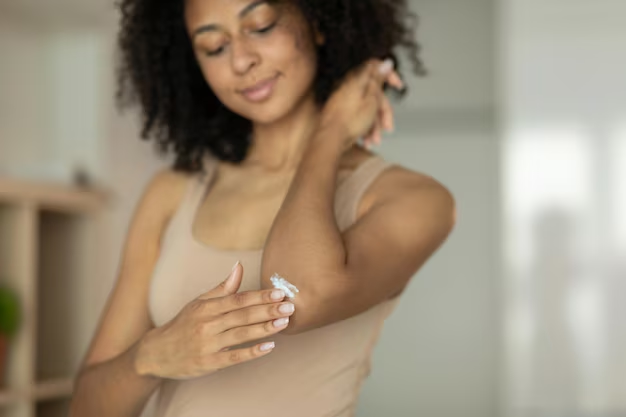Understanding Vulvar Eczema: Symptoms, Causes, and Management
Have you ever experienced itching or discomfort in your intimate area that you just couldn't shake off? You're not alone. Many people experience similar symptoms without knowing the root cause. This discomfort may stem from a condition known as vulvar eczema, a skin disorder that manifests itself uniquely in the vulvar region. But what exactly does vulvar eczema look like, and how can you manage it effectively?
What is Vulvar Eczema?
Vulvar eczema, a type of dermatitis, specifically affects the vulva, the outer part of the female genitalia. Like eczema in other parts of the body, it can be a source of significant discomfort and embarrassment. Understanding its appearance and triggers can be the first step to finding relief and improving quality of life.
How Does Vulvar Eczema Manifest?
The symptoms of vulvar eczema can vary, ranging from mild to severe. It's crucial to recognize the signs for timely intervention:
- Itching and Redness: These are often the most noticeable symptoms. The skin can become inflamed, leading to persistent itching and visible redness.
- Dry, Flaky Skin: The sensitive area may exhibit dry patches, sometimes looking scaly or flaky.
- Swelling and Thickening: The skin can become thickened due to chronic scratching or inflammation, sometimes swelling as a result.
- White or Red Bumps: Small bumps, either red or pale, may appear, which can be mistaken for other skin conditions.
It's important to note that these symptoms can mimic other conditions like yeast infections or sexually transmitted infections, making proper assessment by a healthcare provider essential.
Why Does Vulvar Eczema Occur?
Common Triggers and Underlying Causes
Vulvar eczema can be perplexing because it often stems from multiple factors:
- Allergens and Irritants: Soaps, lotions, and laundry detergents are common culprits. Even products labeled as "gentle" or "natural" can cause irritation.
- Clothing Materials: Certain fabrics, especially synthetic ones, can prevent aeration, causing moisture and heat buildup that exacerbates symptoms.
- Sweating and Friction: Excessive sweating and friction from tight clothing can irritate the delicate skin of the vulva.
- Hormones: Hormonal changes, such as those during menstrual cycles or menopause, can affect skin sensitivity and exacerbate eczema symptoms.
The Link with Stress
Stress is a known exacerbator of many skin conditions, including eczema. Increased stress levels can lead to skin flare-ups, with the vulvar region being no exception.
Managing Vulvar Eczema: Steps to Relief
While dealing with vulvar eczema can be uncomfortable, implementing some practical changes can go a long way toward relief and management.
Daily Care and Home Remedies
Gentle Cleansing: Use hypoallergenic, fragrance-free products specifically designed for sensitive skin to clean the area.
Moisturization: Applying emollients can help soothe dry skin. Look for products that are free from harsh chemicals and fragrances.
Choose the Right Fabrics: Opt for breathable, natural fabrics like cotton underwear, and avoid tight-fitting clothing that can cause friction and trap heat.
Lifestyle Adjustments
- Stress Management: Consider stress-reduction techniques like mindfulness, yoga, or regular exercise to manage stress-induced flare-ups.
- Diet Considerations: While no specific diet is required, maintaining a balanced diet rich in anti-inflammatory foods — like fruits, vegetables, and omega-3 fatty acids — may help reduce overall inflammation.
When to Seek Professional Help
If self-care measures don’t alleviate the discomfort or if symptoms worsen, it's important to seek medical advice. A healthcare professional can:
- Provide a Diagnosis: This ensures that symptoms are not due to other conditions like infections.
- Prescribe Medications: Topical steroids or antihistamines may be recommended to manage severe symptoms.
- Explore Allergen Testing: Identifying specific allergens can help in circumventing potential triggers.
Coping with Emotional and Social Impacts
Living with vulvar eczema isn’t just a physical concern; it can also affect emotional and social well-being. Understanding these aspects is key to comprehensive care.
- Open Communication: Discussing your symptoms with your healthcare provider, partner, or support group can provide emotional relief.
- Educate Yourself and Others: Understanding that vulvar eczema is a common condition can help reduce stigma and provide peace of mind.
Distinguishing Vulvar Eczema from Other Conditions
Knowing how to differentiate vulvar eczema from other genital conditions can be empowering and reduce anxiety.
Eczema vs. Yeast Infections
While both conditions can cause itching and redness:
- Yeast infections usually involve a thick, white discharge with a distinct, yeasty odor.
- Vulvar eczema typically does not cause this type of discharge.
Eczema vs. STIs
Certain sexually transmitted infections (STIs) can cause symptoms similar to eczema:
- STIs may present with blisters or sores, whereas eczema usually involves dry patches and flakiness.
- Proper testing is essential to distinguish between these conditions.
Empowering Yourself with Knowledge
A proactive approach to managing vulvar eczema involves consistent self-care, lifestyle modifications, and seeking appropriate medical guidance. An understanding of triggers and effective management strategies can significantly reduce the impact of this condition.
Encourage Open Conversations
Breaking the stigma associated with vulvar conditions through conversations with healthcare providers and peers can foster a supportive community. By encouraging open dialogues, those affected by vulvar eczema can share experiences and learn from one another.
Ultimately, embracing a healthy skin care routine and reducing potential triggers lays the foundation for managing vulvar eczema effectively. Remember that you're not alone; support and resources are available.
🌼 Key Takeaways: Managing Vulvar Eczema Effectively 🌼
- Identify Symptoms: Look out for itching, redness, and flaky skin. 🤔
- Avoid Triggers: Use gentle products, choose breathable clothing, and minimize irritants. 👚
- Practice Self-Care: Maintain a gentle skin care routine and manage stress levels. 🧘♀️
- Seek Medical Advice: Consult a healthcare provider for diagnosis and treatment options if symptoms persist. 🩺
- Communicate Openly: Discuss your condition with a trusted provider or support group to help alleviate emotional stress. 🗣️

